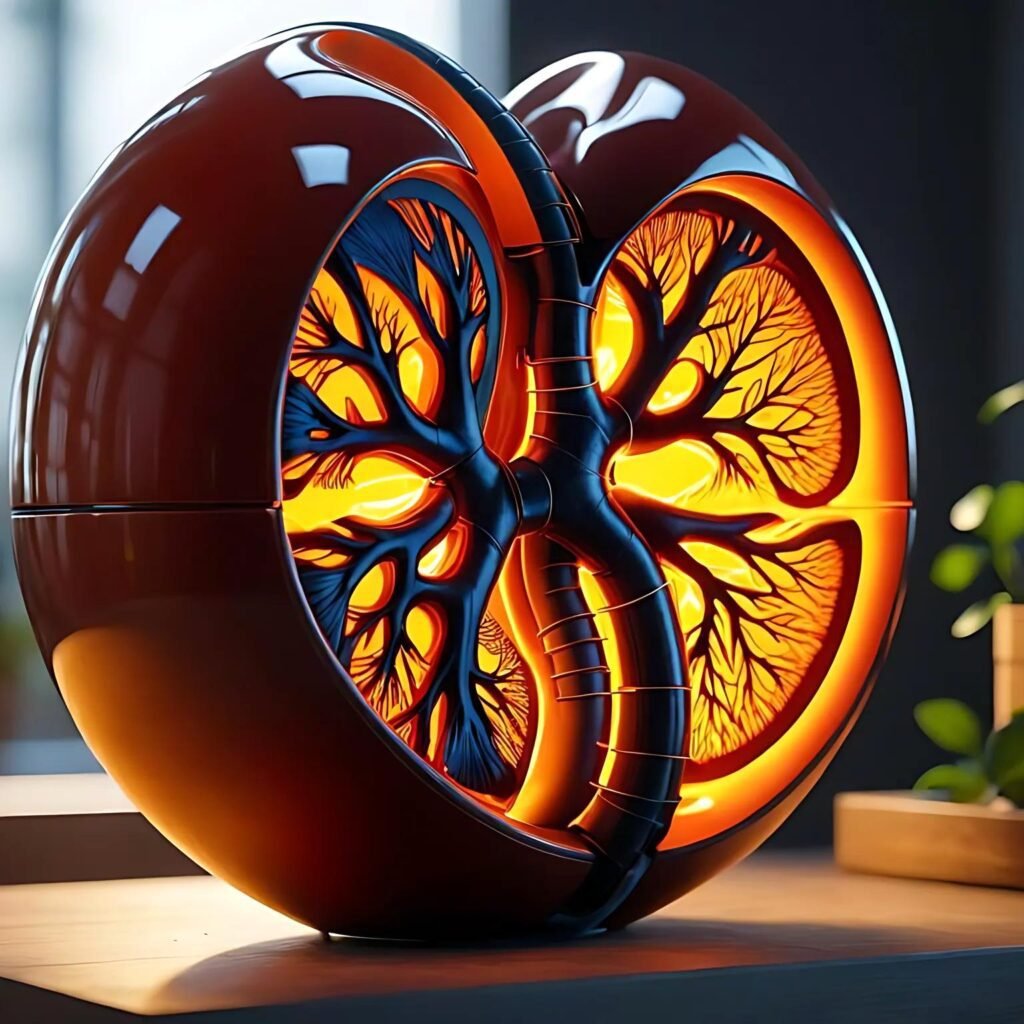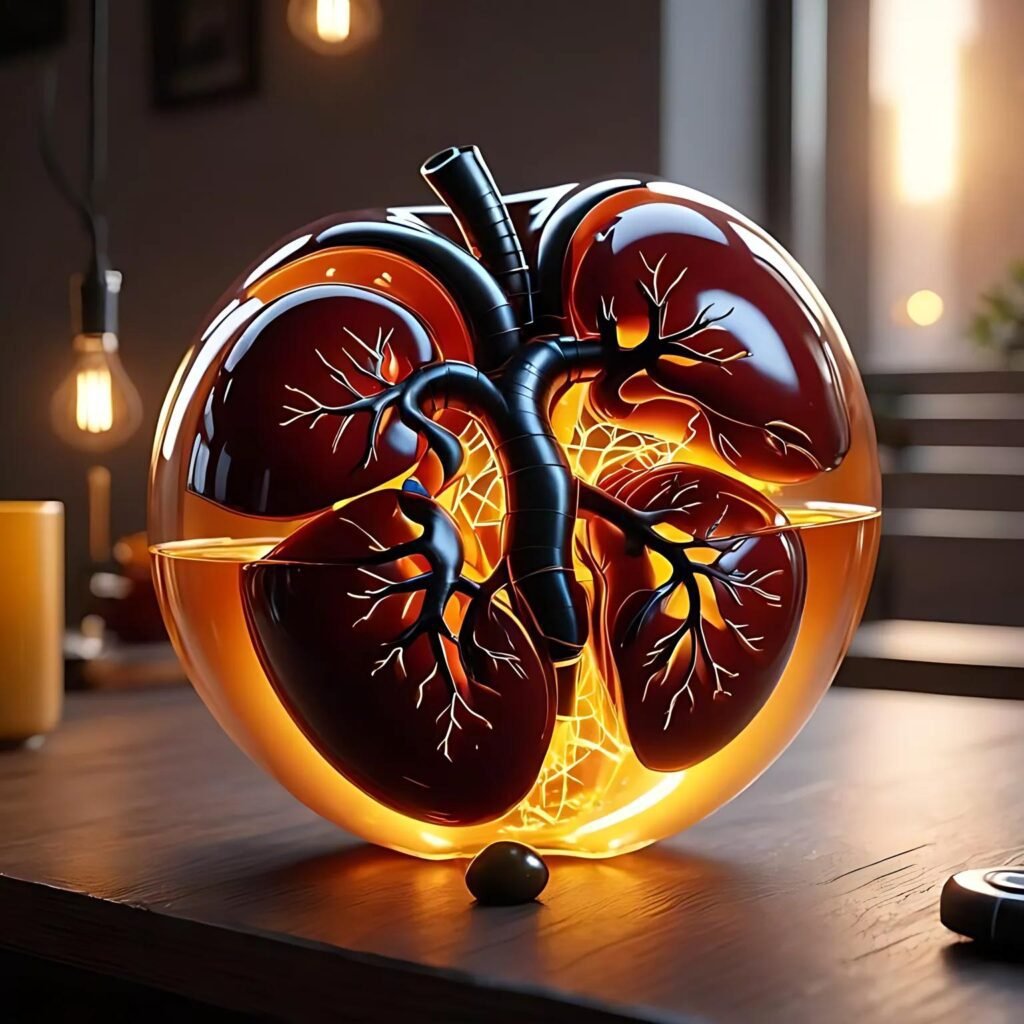### Understanding Kidney Problems and Solutions
#### Introduction
Kidney problems are increasingly common worldwide, affecting millions of people and significantly impacting their quality of life. The kidneys play a crucial role in maintaining overall health by filtering waste products and excess fluids from the blood, regulating blood pressure, balancing electrolytes, and producing hormones essential for red blood cell production and bone health. This comprehensive blog explores various kidney problems, their causes, symptoms, and potential solutions to manage and treat these conditions effectively.

#### Types of Kidney Problems
1. **Chronic Kidney Disease (CKD)**: CKD is a long-term condition where the kidneys gradually lose their function over time. It often progresses slowly and may not show symptoms in the early stages.
2. **Acute Kidney Injury (AKI)**: AKI is a sudden loss of kidney function, typically due to an injury or a medical condition that impairs blood flow to the kidneys or causes direct damage.
3. **Kidney Stones**: These are hard deposits of minerals and salts that form inside the kidneys. They can cause severe pain and block the urinary tract.
4. **Polycystic Kidney Disease (PKD)**: PKD is a genetic disorder characterized by the growth of numerous cysts in the kidneys, leading to enlarged kidneys and kidney failure.
5. **Glomerulonephritis**: This condition involves inflammation of the tiny filters in the kidneys (glomeruli), affecting their ability to filter waste and excess fluids from the blood.
6. **Urinary Tract Infections (UTIs)**: While UTIs primarily affect the bladder, they can spread to the kidneys, causing pyelonephritis, a serious kidney infection.
7. **Nephrotic Syndrome**: This is a kidney disorder that leads to excessive protein loss in the urine, causing swelling and an increased risk of infections and blood clots.
#### Causes of Kidney Problems
1. **Diabetes**: High blood sugar levels can damage the blood vessels in the kidneys, leading to diabetic nephropathy, a major cause of CKD.
2. **High Blood Pressure**: Hypertension can damage the blood vessels in the kidneys, impairing their function over time.
3. **Genetic Factors**: Conditions like PKD are inherited and can significantly impact kidney health.
4. **Infections**: Severe infections can damage the kidneys directly or indirectly through the immune response.
5. **Medications**: Some medications, particularly nonsteroidal anti-inflammatory drugs (NSAIDs) and certain antibiotics, can harm the kidneys if used excessively or inappropriately.
6. **Obstructions**: Kidney stones, tumors, or an enlarged prostate can block the urinary tract, leading to kidney damage.
7. **Autoimmune Diseases**: Conditions like lupus and IgA nephropathy can cause the immune system to attack the kidneys.

#### Symptoms of Kidney Problems
1. **Fatigue and Weakness**: As the kidneys fail to filter waste products effectively, toxins accumulate in the body, causing fatigue and weakness.
2. **Swelling (Edema)**: Fluid retention, particularly in the legs, ankles, and around the eyes, is a common symptom of kidney dysfunction.
3. **Changes in Urination**: These can include foamy urine, blood in the urine, or changes in the frequency and volume of urination.
4. **Shortness of Breath**: Fluid buildup in the lungs due to kidney failure can cause difficulty breathing.
5. **Nausea and Vomiting**: Accumulation of waste products in the blood can lead to gastrointestinal symptoms.
6. **Itchy Skin**: High levels of waste products in the blood can cause severe itching.
7. **Chest Pain**: If fluid builds up around the heart lining, it can cause chest pain.
#### Diagnosis of Kidney Problems
1. **Blood Tests**: Tests such as serum creatinine and blood urea nitrogen (BUN) measure the levels of waste products in the blood, indicating kidney function.
2. **Urine Tests**: These tests can detect abnormalities like protein, blood, or glucose in the urine, suggesting kidney damage.
3. **Imaging Studies**: Ultrasound, CT scans, and MRI can visualize the kidneys and detect structural abnormalities.
4. **Kidney Biopsy**: A small sample of kidney tissue is examined under a microscope to diagnose specific kidney diseases.
5. **Glomerular Filtration Rate (GFR)**: This test estimates the rate at which the kidneys filter waste from the blood, helping to determine the stage of kidney disease.
#### Treatment and Management of Kidney Problems
1. **Lifestyle Modifications**: – **Diet**: A kidney-friendly diet low in sodium, phosphorus, and protein can help manage CKD. Patients should avoid high-potassium foods if their kidney function is significantly impaired.
– **Exercise**: Regular physical activity can help control blood pressure and blood sugar levels, reducing the risk of kidney damage.
– **Smoking Cessation**:
Quitting smoking can improve overall kidney health and reduce the progression of CKD
.2. **Medications**: – **Blood Pressure Medications**: ACE inhibitors and ARBs help control blood pressure and protect the kidneys.
– **Diuretics**: These medications help reduce fluid buildup in the body.
– **Phosphate Binders**: These help control the levels of phosphorus in the blood. –
**Erythropoietin**: This hormone helps treat anemia, a common complication of CKD.
3. **Dialysis**: For patients with end-stage kidney disease (ESKD), dialysis is a life-sustaining treatment that performs the filtering functions of the kidneys. There are two main types:
– **Hemodialysis**: Blood is filtered through a machine outside the body. – **Peritoneal Dialysis**: The lining of the abdomen acts as a natural filter.
4. **Kidney Transplant**: This is the best long-term solution for ESKD. A healthy kidney from a living or deceased donor is transplanted into the patient.
5. **Treating Underlying Conditions**: Managing conditions like diabetes and hypertension is crucial for preventing and slowing the progression of kidney disease.
6. **Pain Management for Kidney Stones**: Pain relief is often necessary during kidney stone episodes. Drinking plenty of fluids can help pass small stones, while larger stones may require medical intervention, such as lithotripsy or surgery.
7. **Antibiotics for Infections**: UTIs and kidney infections require prompt treatment with antibiotics to prevent damage to the kidneys.
#### Preventive Measures for Kidney Health
1. **Regular Check-Ups**: Regular medical check-ups can help detect kidney problems early, particularly for those with risk factors like diabetes, hypertension, or a family history of kidney disease.
2. **Healthy Diet**: A balanced diet rich in fruits, vegetables, whole grains, and lean proteins supports kidney health. Limiting salt, sugar, and processed foods is essential.
3. **Hydration**: Staying well-hydrated helps the kidneys function properly and prevents the formation of kidney stones.
4. **Avoiding Overuse of Medications**: NSAIDs and other nephrotoxic drugs should be used sparingly and only as prescribed by a healthcare professional.
5. **Maintaining a Healthy Weight**: Obesity increases the risk of diabetes and hypertension, which are major risk factors for kidney disease.
6. **Managing Chronic Conditions**: Proper management of chronic conditions like diabetes, hypertension, and cardiovascular disease is crucial for preventing kidney damage.
#### Innovative Research and Future Directions
1. **Regenerative Medicine**: Research into stem cell therapy and regenerative medicine holds promise for repairing damaged kidney tissue and potentially curing some kidney diseases.
2. **Artificial Kidneys**: Advances in bioengineering are bringing us closer to the development of wearable or implantable artificial kidneys, which could provide an alternative to dialysis and transplants.
3. **Genetic Research**: Understanding the genetic basis of kidney diseases like PKD could lead to targeted therapies that slow or halt disease progression.
4. **Precision Medicine**: Personalized treatment plans based on an individual’s genetic makeup, lifestyle, and environment could improve outcomes for kidney disease patients.
5. **Public Health Initiatives**: Increased awareness and screening programs can help detect kidney disease early, particularly in high-risk populations.
#### Conclusion
Kidney problems are a significant health concern that requires comprehensive management and preventive strategies. Early detection and treatment are crucial for preventing the progression of kidney disease and improving quality of life for affected individuals. By understanding the causes, symptoms, and available treatments, patients can take proactive steps to maintain their kidney health and seek appropriate care when needed. Advances in medical research continue to offer hope for better treatments and potential cures for kidney diseases in the future.
Silent Struggles: The Hidden Impact of Insomnia on Health and Well-Being”
Secrets to Losing Weight: Tips from Top Nutritionists”
Vitamin A benefits deficiency diseases sources function
Boost Your Health with Onions: Anti-inflammatory, Antibacterial, and Beyond